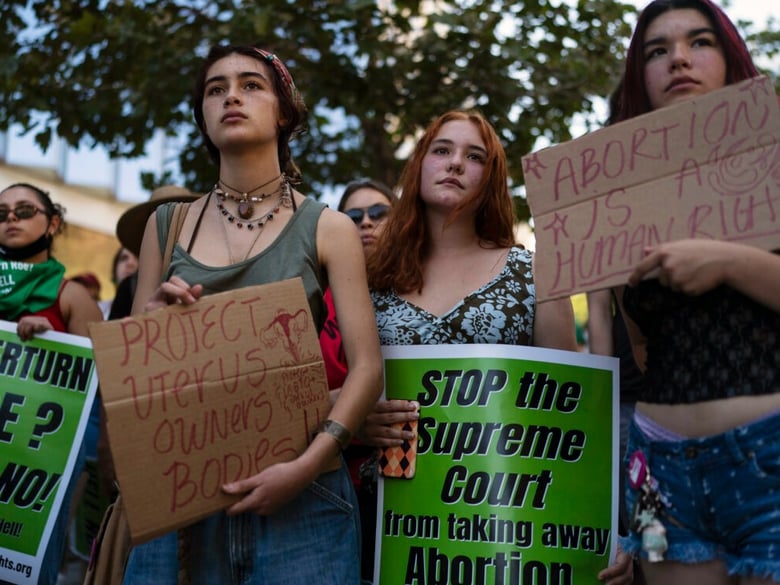One Year After Overturning Roe v. Wade | Supreme Court Upholds Indian Child Welfare Act | Community Paint Day
Update RequiredTo play audio, update browser or
Flash plugin.

A group of young women listen to a speech during a protest outside a federal courthouse in Los Angeles on June 24, 2022.
Jae C. Hong / AP Photo
What’s changed one year since the Supreme Court overturned Roe v. Wade. Wilton Rancheria Tribe discusses the Indian Child Welfare Act. Community Paint Day on the 21st Ave underpass of Highway 99.
One year after overturning Roe v. Wade
A year has passed since the Supreme Court overturned Roe v. Wade, thus allowing states to come up with their own laws to expand or restrict accessibility to reproductive care. As it stands today, 25 million women live in states that have banned or severely restricted access to abortions, while in California, voters decided to codify the right to seek an abortion in the state’s constitution. A lot has changed over the past year and continues to evolve rapidly. Joining us on Insight is UC Davis, Martin Luther King Professor of Law, Lisa Ikemoto, an expert in reproductive rights and justice, who breaks down where the laws have changed and where the country is moving in the fight over access to abortions.
Indian Child Welfare Act
The Supreme Court weighed in on a more than 40-year-old federal law intended to protect Native American children from being removed from their tribal communities. The Indian Child Welfare Act was created in 1978 in response to a shameful time in U.S. history, where upwards of 35% of Indian children were removed from their families and placed into non-native homes, which in turn, erased their tribal culture and heritage. But a case out of Texas challenged the constitutionality of this law, which raised a debate between tribal sovereignty, state law, as well as the rights of an adoptive parent versus a child in determining custody. In a 7-2 decision, the Supreme Court decided to reject the constitutional challenges. California is home to the most tribes in the country. Chief Judge Christine Williams of the Wilton Tribal Court, who is also a Yurok tribal member, discusses the U.S. Supreme Court decision in Haaland v. Brackeen which upholds the Indian Child Welfare Act (ICWA).
Community Paint Day
Sacramento is home to vibrant murals. Have you ever wanted to be part of creating one? Artist Jaya King discusses the 21st Ave Community Paint Day on July 8 to paint a collaborative mural among local artists and the community on the 21st Avenue underpass of Highway 99 in Sacramento. The event is hosted by the Franklin Neighborhood Development Corporation (FNDC), in partnership with the Sacramento Office of Arts and Culture, and is open to all ages as well as all skill levels.